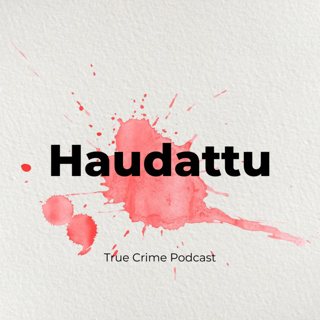
Why Do We Consider Assyria The Most Sadistically Violent Empire When Oftentimes It Wasn't?
At its height in 660 BCE, the kingdom of Assyria stretched from the Mediterranean Sea to the Persian Gulf. It was the first empire the world had ever seen. Assyria’s wide-ranging conquests have long been known from the Hebrew Bible and later Greek accounts (and its reputation for unspeakable cruelty, with images of Assyrians skinning its enemies alive carved into stone on an Assyrian royal palace). But nearly two centuries of research now permit a rich picture of the Assyrians and their empire beyond the battlefield: their vast libraries and monumental sculptures, their elaborate trade and information networks, and the crucial role played by royal women. Today’s guest is Eckart Frahm, author of “Assyria: The Rise and Fall of the World’s First Empire.” Using archaeological research, along with the study of tens of thousands of cuneiform texts, researchers have been able to construct a more accurate depiction of Assyrian life, revealing the empire’s enduring impact on global civilization. Frahm shows how despite its war-prone image, Assyria proved innovative in the realms of architecture, arts, technology, and diplomacy. Readers will learn about the elaborate “Royal Road” that enabled trade and communication over vast distances, how Assyrian scholars created the first universal library, and about the impact of plagues and climate change on the empire’s fortunes.See omnystudio.com/listener for privacy information.
16 Touko 20231h 3min

Moral Panics and Mass Hysteria: The Dancing Plague, Salem Witch Trials, and The Tulip Market Bubble
One person's psychosis can be easily dismissed, but how do we account for collective hysteria, when an entire crowd sees the same illusion or suffer from the same illness? It's enough to make somebody believe in dark magic and pick up their pitchfork, ready to hang an accused witch.Sadly, such paranoia has led to many witch hunts in the past. In today's episode we look at some of the most notorious historical cases of mass hysteria and moral panics. But these cases don't only extend to Puritan-era witch panics. We will also look at cases that hit closer to home—such as economic bubbles and the housing market crash of the early 2000s.This episode includes such cases of mass hysteria as-- Dancing mania, in which German peasants in 1374 spent weeks dancing in a fugue state, with some toppling over dead from utter exhaustion-- The cat nuns of medieval France, where the sisters became to inexplicably meow together, leaving the surrounding community perplexed-- The Salem Witch trials, where 19 were executed due to claims of sorcery-- The Jersey Devil Panic, in which dozens of newspapers claimed in 1909 that a winged creature attacked a trolley car in Haddon HeightsSee omnystudio.com/listener for privacy information.
11 Touko 202350min

A French Archeologist – Considered the Female Indiana Jones – Saved Dozens of Ancient Egyptian Temples From Flooding
In the 1960s, the world’s attention was focused on a nail-biting race against time: Fifty countries contributed nearly a billion dollars to save a dozen ancient Egyptian temples, built during the height of the pharaohs’ rule, from drowning in the floodwaters of the gigantic new Aswan High Dam. But the massive press coverage of this unprecedented rescue effort completely overlooked the gutsy French archaeologist who made it all happen. Without the intervention of Christiane Desroches-Noblecourt, the temples—including the Metropolitan Museum’s Temple of Dendur—would be at the bottom of a huge reservoir. It was a project of unimaginable size and complexity that required the fragile sandstone temples to be dismantled, stone by stone, and rebuilt on higher ground. A willful, real-life version of Indiana Jones, Desroches-Noblecourt refused to be cowed by anyone or anything. As a member of the French Resistance in World War II she had survived imprisonment by the Nazis; in her fight to save the temples, she defied two of the most daunting leaders of the postwar world, Egyptian President Abdel Nasser and French President Charles de Gaulle. As she told one reporter, “You don't get anywhere without a fight, you know.” Yet Desroches-Noblecourt was not the only woman who played a crucial role in the endeavor. The other was Jacqueline Kennedy, America’s new First Lady, who persuaded her husband to call on Congress to help fund the rescue effort. After a century and a half of Western plunder of Egypt’s ancient monuments, Desroches-Noblecourt had done the opposite. She had helped preserve a crucial part of its cultural heritage and, just as important, made sure it remained in its homeland.Today’s guest is Lynne Olson, author of “Empress of the Nile: The Daredevil Archeologist Who Saved Egypt’s Ancient Temples.” We discuss why Christiane Desroches is something of a real-life female Indiana Jones, what tactics Desroches used to save Egyptian antiquities from flooding in the Nile basin, and how important her intervention was to the effort.See omnystudio.com/listener for privacy information.
9 Touko 202334min

Eugenics is Considered a Form of Scientific Fascism Today, But 100 Years Ago It Was Universally Popular
Inspired by Charles Darwin’s ideas about evolution, the theory of eugenics arose in Victorian England as a proposal for ‘improving’ the British population. It quickly spread to America, where it was embraced by presidents, funded by Gilded Age monopolists, and enshrined into racist laws that became the ideological cornerstone of the Third Reich. Despite this horrific legacy, eugenics looms large today as the advances in genetics in the last thirty years—from the sequencing of the human genome to modern gene editing techniques—have brought the idea of population purification back into the mainstream. Today’s guest, Adam Rutherford, author of “Control: The Dark History and Troubling Present of Eugenics” calls eugenics “a defining idea of the twentieth century.” Eugenics has “a short history, but a long past,” Rutherford writes. With roots in key philosophical texts of the classical world that formed the basis of the Nazi worldview and the rationale for genocide, eugenics still informs present-day discussions and beliefs about race supremacy and genetic purity. It remains an eternal temptation to powerful people who wish to sculpt society through reproductive control.See omnystudio.com/listener for privacy information.
4 Touko 20231h 1min

James Early Launches New Series: The Second World War in Europe
The roots of the Second World War in Europe lie within the First World War. The 1919 Treaty of Versailles formally ended the war between Germany and the western Allies, but the geopolitical situation it created was far from stable. Ten years later, the Great Depression made things even worse. In this episode preview from Key Battles of American History (the first in the World War II in Europe series), James and cohost Sean McIver discuss the unsettled state of Europe between 1918 and 1930 and the gradual fracturing of the uneasy peace that it enjoyed.To continue listening to Key Battles of American History, check out the links below!Apple Podcasts: https://apple.co/3nCfZZySpotify: https://spoti.fi/3nIwO5cSee omnystudio.com/listener for privacy information.
3 Touko 202316min

Light-Horse Harry Lee: A Founding Father's Journey From Glory to Ruin
The history of the American Revolution is written by and about the victors like Washington, Jefferson, and Adams. But separating the heroes from the villains is not so black and white.So how should we remember a man like Major General Henry “Light-Horse Harry” Lee III—the father of Robert E. Lee— who rose to glory, helped shape the fabric of America, but ultimately ended his life in ruin? He is responsible for valiant victories, enduring accomplishments, and catastrophic failures.Today I'm speaking with Ryan Cole, author of the new book Light-Horse Harry Lee: The Rise and Fall of a Revolutionary HeroWe discuss how he was a...Brilliant cavalryman who played a crucial role in Nathanael Greene’s strategy that led to Britain’s surrender at YorktownClose friend of George Washington—he gave the famous eulogy of “first in war, first in peace, first in the hearts of his countrymen” which is widely quoted todayStrong supporter of the Constitution—his arguments led Virginia, the most influential colony in the soon-to-be country, to ratify itVictim of a violent political mob—he was beaten with clubs, his nose was partially sliced off, and hot wax was dripped into his eyesSee omnystudio.com/listener for privacy information.
2 Touko 20231h 2min

Abraham Lincoln’s Religious Transformation Mirrored Larger Revival Trends of 1860s America
Abraham Lincoln, unlike most of his political brethren, kept organized Christianity at arm’s length. He never joined a church and only sometimes attended Sunday services with his wife. But over the course of his life, the erstwhile skeptic effectively evolved into the nation’s first evangelical president. The Civil War, he told Americans, was divine retribution for the sin of slavery. “Lincoln’s God: How Faith Transformed a President and a Nation” by today’s guest Joshua Zeitz, is the story of that transformation, the role Lincoln’s conversion played in the war, and the way it in turn transformed Protestantism. Rather than focus on battles and personalities, we explore the social impact of the war on Northerners’ spiritual worldview, and the ways in which religion helped millions of Northerners interpret the carnage and political upheaval of the 1850s and 1860s. about the book. Long underestimated in accounts of the Civil War, religion—specifically evangelical Christianity—played an instrumental role on the battlefield and home front, and in the corridors of government.See omnystudio.com/listener for privacy information.
27 Huhti 202336min

Augustine Built the Medieval World With the Help of His Mother, Concubine, Empress, and 10-Year-Old Fiancé
Saint Augustine of Hippo is one of the most important figures of the Latin Middle Ages, and his writings have shaped Western thought on marriage and sexuality. However, few have considered the deeply influential role of the women in his life and how they shaped his thinking. Drawing on how Augustine’s presents them in his startlingly intimate memoir, Confessions, it becomes clear that this canonical Western is not only arguably the first autobiography; it offers a rare account of the Classical World through the eyes of women. Today’s guest is Kate Cooper, author of Queens of a Fallen World, a book that explores the troubled world of the waning Roman Empire through the lens of four prominent women whose lives were chronicled in Saint Augustine of Hippo’s startlingly intimate memoir, Confessions — Justina, the troubled empress of ancient Rome; Tacita, the ten-year-old Milanese heiress from whom Augustine broke his engagement, irrevocably altering the course of both their lives; Monica of Thagaste, Augustine’s mother; and Una, Augustine’s mistress, companion of fifteen years and mother to his illegitimate son. It's a story of not only Augustine, but, more broadly, the role of women in Antiquity.See omnystudio.com/listener for privacy information.
25 Huhti 202351min






















